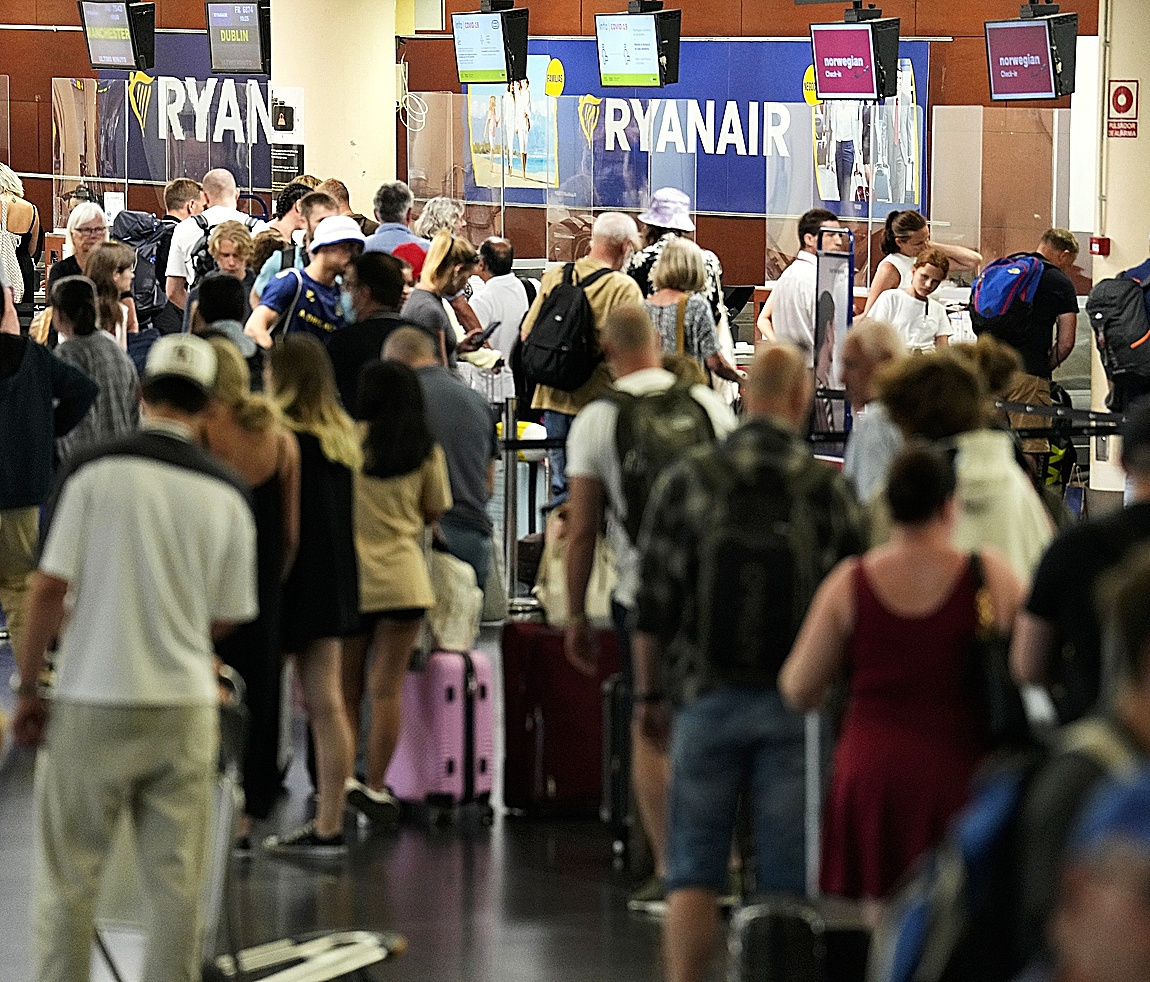If the strikes and the lack of ground personnel are not remedied, European airports are in danger of experiencing a turbulent summer. Specifically, the number of cancellations by European airlines already amounts to a total of 16,000 flights within European airspace for this month of August alone, a figure that rises to 25,378 worldwide.
In Spain, unlike what happens in other European enclaves, the situation on the ground does not suffer the same severity, according to sources from the aviation sector to EL MUNDO. The Government has taken measures in recent months to avoid scenes such as those that took place at the Adolfo Suárez Madrid-Barajas Airport at security checkpoints. Thus, to the increase of 500 police officers to speed up the aforementioned procedures, Moncloa asked the European Union for permission so that British tourists could access Spain through “automatic channels”. In other words, when arriving at passport control, there is now the possibility that travelers are recognized by a biometric scanner that does not take more than 30 seconds to complete the process.
What is worrying, however, is the little progress in the negotiations between the cabin crew of Ryanair and Easyjet and their respective companies. The talks are far from being resolved in both cases, union sources point out. In fact, the Irish low cost has already fired a total of seven workers for “not respecting minimum services” during the called stoppages. On the part of Easyjet, the offer sent to the unions still does not meet the demands raised by its employees since the company does not consider the requested salary increase feasible. “We are surprised to hear them outside the negotiations saying that they are open to unblock this situation when later in the meetings they do not want to talk,” the unions maintain.
Both templates have urged the Government to intervene at the dialogue table in order to reach an agreement “as soon as possible”. For the moment, the Executive has declined to pronounce on the matter. Thus, at 7:00 p.m. yesterday, the total number of cancellations amounted to 30 throughout the Spanish territory. By destinations, the airports of El Prat in Barcelona and Palma de Mallorca continue to be the two most affected, as happened last week.
In Europe the situation is far from the image offered by Spain. At London’s Heathrow airport, operational capacity had to be reduced to at least 100,000 passengers per day until September 11 due to lack of staff. This situation derives from the mechanisms that the British Government articulated to reduce personnel during the pandemic. Unlike the Spanish model, in which the ERTEs have made it possible to recover the vast majority of the workforce, in the United Kingdom this mechanism did not have the same guarantees. Many workers lost their jobs at the beginning of 2021, in most cases they were fired, and now recovering that workforce is an arduous task. Not only because these employees have obtained other jobs, but also because they require education and training to perform their jobs, sources from the airline sector point out.
Emirates, one of the main airlines at the airport in the British capital, has shown its dissatisfaction with the measure announcing that it “will reject the order” in what they understand to be a “flagrant disregard for consumers.” In addition, they denounce that they have only been given a period of 36 hours to comply with the capacity cuts.
The American Delta, meanwhile, has been forced to charter empty planes to “rescue” the orphan suitcases that had been accumulated for days at the London airport. Delta teams sought a creative alternative to return delayed checked baggage from London-Heathrow on July 11 after a flight had to be canceled due to volume restrictions.
The situation in the rest of European airports is similar. According to data from the Hopper agency, 77% of the flights that left Brussels during the month of July were delayed, with the Belgian enclave being the most unpunctual airport in all of Europe. They are followed by: Frankfurt (68%), Eindhoven (67%), Luton (66%), Budapest (65%), Lisbon (65%), Charles de Gaulle (62%), Schiphol (61%), Nice (60 %) and Gatwick (59%).
Conforms to The Trust Project criteria
















